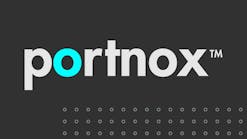As we get ready to turn the page on 2013, we reflect on the news events of the year that will likely help shape the security industry moving forward into 2014 and beyond. Perhaps the event of greatest magnitude occurred in April when two bombs exploded near the finish line of the Boston Marathon, killing three people and wounding more 260 others. There were also a number of other events and business maneuvers that made headlines this year. Here are our editor’s picks for the top news stories of the year:
Boston Marathon bombing
As previously mentioned, no other single event had a bigger impact on the security industry as the bombing at the Boston Marathon in April. Not only was it the first successful domestic terror attack since 9/11, but it shined a spotlight on the importance of video surveillance and how it can be used to quickly and efficiently gather evidence.
In the aftermath of the bombing, there has been an increased emphasis on video sharing initiatives between the public and private sector, a renewed interest in the use of video analytics and a desire for solutions that can effectively leverage big data. Aside from surveillance, SIW also took a look at how cities can use existing technologies to mitigate against the threat of improvised explosive devices and the inherent challenges associated with securing open air venues.
NSA snooping controversy
Former government contractor Edward Snowden opened the proverbial lid on Pandora’s Box earlier this year when he divulged confidential documents to several media outlets detailing the surveillance efforts of the National Security Agency against foreign governments and U.S. citizens alike. The subsequent stories published have resulted in a firestorm of criticism against the NSA and have revealed the depth and intricacies of their intelligence gathering efforts. Just this month, federal judges issued rulings in stark contrast to one another on the legality of the agency’s bulk collection of telephone records on millions of Americans. Although President Obama has promised improved oversight of government surveillance, legal experts believe that the matter will ultimately be settled by the U.S. Supreme Court.
DirecTV enters security business
Jumping on the bandwagon with their competitors in the cable television industry, DirecTV entered the security market this year with its acquisition of LifeShield Home Security in early June. Brad Bentley, senior vice president of revenue strategy and planning for DirecTV, told SIW the home security market was attractive to the company for several reasons.
“From a home security perspective, it’s a high margin, low-churn and a really low-penetrated business,” Bentley said. “We also looked at it as a natural extension of the DirecTV product offering. We do have a national footprint of technicians, consultants, as well as dealers, so we’re in homes everyday and looking to provide additional value. That, coupled with our expertise in delivering an exceptional video experience, we felt we had an opportunity to bring home security in that product offering.”
As with the rise of security offerings from Comcast and AT&T in recent years, reaction to the news from much of the industry was mixed, with many taking a “wait-and-see” attitude.
Nuke plant vulnerabilities exposed
A report released in August by the Nuclear Proliferation Prevention Project (NPPP) at the University of Texas at Austin’s LBJ School of Public Affairs found that the nation’s nuclear plants are sorely lacking when it comes to protecting against terrorist threats. The study, entitled "Protecting U.S. Nuclear Facilities from Terrorist Attack: Re-assessing the Current 'Design Basis Threat' Approach," found not one of the 104 commercial nuclear reactors in the U.S. is protected against a "maximum credible terrorist attack," such as 9/11. In fact, the report said that nuclear facilities are not even required to protect themselves against airplane attacks, assaults by large teams of terrorists or even high-power sniper rifles.
Retailers under siege from thieves
While the recent data breach suffered by Target in which nearly 40 million debit and credit card numbers were compromised has garnered a lot of attention, statistics also show that retailers aren’t fairing much better when it comes to losses from their physical stores. According to the 25th Annual Retail Theft Survey released by Jack L. Hayes International in June, outside shoplifting and internal employee theft numbers rose in 2012. The survey, which featured 23 of the country’s largest retail companies, found that shoplifting apprehensions increased 7.4 percent and the recovery dollars from shoplifters increased an amazing 22.7 percent. Dishonest employee apprehensions and recovery dollars also increased in 2012 - 5.5 percent and 7 percent respectively. The 2012-2013 Global Retail Theft Barometer, which was published just last month, found that losses from shrink, which include shoplifting, employee fraud, organized retail crime (ORC), and administrative errors, cost retailers more than $112 billion last year, representing 1.4 percent of retail sales on average.
Washington Navy Yard shooting
Twelve people were killed and three others were injured in September when Navy reservist Aaron Alexis walked into the Washington Navy Yard an opened fire with a shotgun. The deadly shooting has raised numerous questions about the background screening process for government contractors who have authorized access to secure facilities as Alexis did at the Navy Yard. Alexis had a well-documented history of mental health issues and criminal conduct. A sister of one of the victims recently filed a lawsuit against the Navy, the Department of Veterans Affairs and two defense contractors seeking $37.5 million in damages.
Obamacare’s impact on security
Although the full effects of the Affordable Care Act have yet to be fully realized as it pertains to security, there are a myriad of concerns within both the cyber and healthcare security community about the devastating impact the legislation could have on their constituents. Cybersecurity experts started sounding the alarm bells when the new online health insurance marketplace, HealthCare.gov, first went online in October. While the website was maligned for its well-publicized glitches, many IT security experts expressed concerns about how hackers might exploit the situation by launching spear-phishing campaigns.
“Now you’re looking at those health exchanges that allow the bad guys to go for a highly-targeted spear phishing attack that you could essentially automate if you’re looking at large-scale organization,” said Stu Sjouwerman, founder and CEO of IT security awareness training firm KnowBe4. “With their own data mining tools, they can now create a profile of an employee at let’s say, for example, Home Depot. You do a little bit of research on what health insurer Home Depot has, now you can create a highly-targeted spear phishing attack to a few key, often C-level employees, but not necessarily always. You can get in through the mail room as well.”
Industry experts say that provisions within the law will impact physical security at hospitals as well. According to Ben Scaglione, director of healthcare security services for G4S and a member at large on the board of the International Association for Healthcare Security and Safety (IAHSS), hospitals are being forced to make tough spending decisions regarding support services which include security.
“What healthcare is starting to see right now is a loss in Medicare and Medicaid funding. What Obamacare has setup is that hospitals get a basic set of reimbursement or a basic number of dollars and then to get more of those dollars, it is based on (the hospital’s) clinical data and patient satisfaction data. They have to meet certain national guidelines that are going to be changing over the next couple of years in order to get that higher level of reimbursement,” Scaglione explained.
AT&T continues aggressive market roll out
More than a year after it initially announced plans to enter the home security and automation market, Telco giant AT&T in October surpassed expectations for the roll out of its Digital Life offering as the company said that the service was available in more than 50 markets nationwide. The company had previously stated plans to launch in 50 markets by the end of the year. Despite the aggressive push and subsequent marketing blitz, however, independent alarm dealers remain largely unfazed. “At LiveWatch, we believe that companies like AT&T and Comcast will raise awareness for home security and automation which will help increase the entire industry's market penetration beyond the roughly 20 percent level where we have been stuck for decades,” said Brad Morehead, CEO of Illinois-based LiveWatch Security.
Allegion becomes independent
Almost a year after Ingersoll Rand announced that it would be spinning off its security business, that vision has now become a reality as Allegion officially became an independent company earlier this month and began trading on the New York Stock Exchange. In an exclusive interview with SIW, Dave Petratis, the company’s chairman and CEO, said that one of his goals for the company, which makes such legacy brands as Schlage, CISA, Interflex, LCN and Von Duprin, is to grow organically and invest in their people and technology. Being an independent company, Petratis said that they will be able to reinvest their profits back into the organization thereby continuing to drive the innovation that has made it successful in the past.
Notable acquisitions
Following on its tremendous growth over the past several years, high-definition video firm Avigilon entered the access control market earlier this spring as it announced the acquisition of RedCloud Security for $17 million in cash. The company said that the acquisition will add a "complementary product line" to its portfolio of high-definition surveillance products and would also enable them to tap into the fast growing market for electronic access control systems. Tyco also expanded its portfolio of products as it acquired video management software provider Exacq Technologies for $150 million in June. Exacq is being integrated into the Tyco Security Products business unit. The company’s ExacqVision brand and respective technologies will remain in place.



